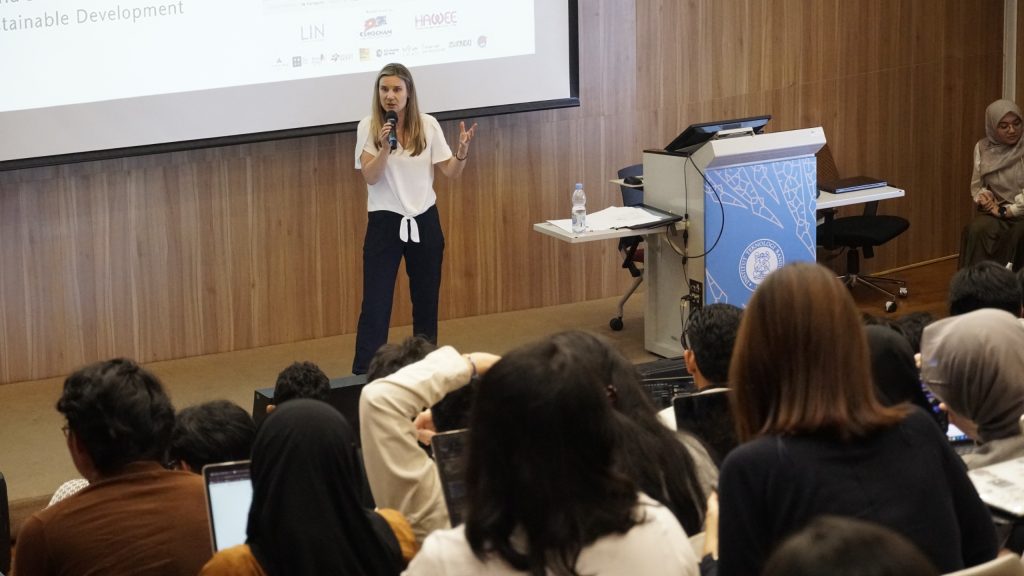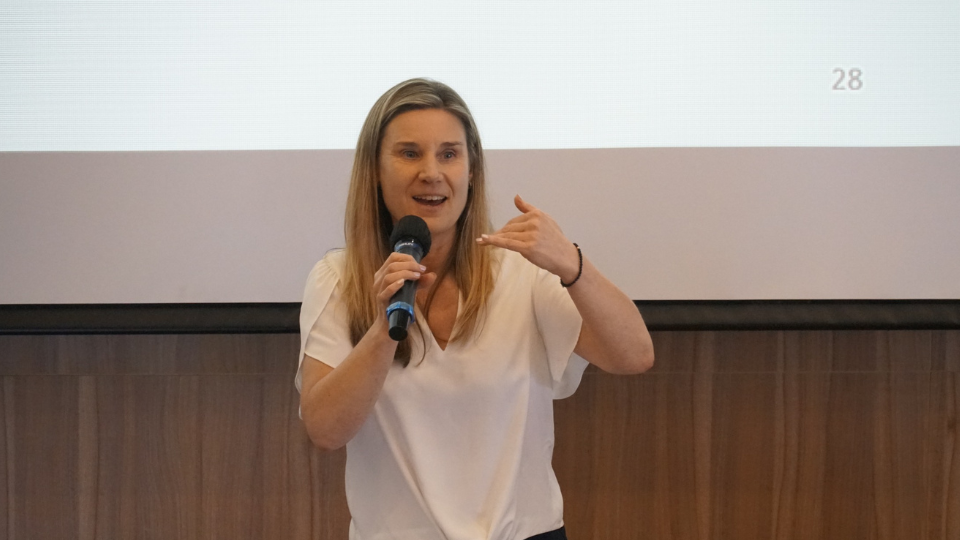Rapid global population growth, rising middle-class prosperity, especially in Asia, and an increasing consumerism culture drive higher consumption worldwide. This surge is putting unsustainable pressure on the planet’s ecosystems and resources.
This concern was raised by Associate Professor Leah Watkins from the University of Otago, New Zealand, during a public lecture titled “Ethics in International Trading: Sustainable Marketing Cases” at the Nemangkawi Auditorium, SBM ITB, on Monday (23/9). The lecture, which is part of the Integrated Business Asia course, focused on the crucial topic of sustainable consumption and production.
Watkins emphasized that responsible consumption and production are essential to achieving the Sustainable Development Goals (SDGs), specifically SDG 12. Responsible consumption and production are also key to addressing SDG 13 (Climate Change), SDG 14 (Life Below Water), and SDG 15 (Life on Land). While consumers are increasingly concerned about environmental, social, and economic issues, barriers such as affordability, convenience, product performance, and skepticism hinder the widespread adoption of sustainable behaviors.
“New Zealanders are increasingly seeking out ‘better’ businesses that protect their customers and attract talent while being cautious of ‘greenwashing’ practices,” Watkins said.
She highlighted that the key challenge for businesses is building consumer trust. Fasya Amasani, an MBA student specializing in entrepreneurship at the University of Otago, outlined businesses’ critical role in promoting sustainable consumption through three key approaches: innovation, influencing, and regulating choice.
In terms of innovation, businesses are encouraged to make changes by innovating products and designs, improving production processes and supply chain management, and rethinking business models to align with sustainability goals. This innovation is vital in addressing the challenges of overconsumption and environmental impact.
The second approach, influencing choice, involves businesses actively shaping consumer behavior by helping them discover, select, and use sustainable products. This can be achieved through marketing communications emphasizing sustainability, ensuring consumers are well-informed and motivated to make environmentally responsible choices.
The third approach, choice editing, refers to businesses controlling aspects of their products, such as removing harmful ingredients or components that damage the environment or human health. By doing this, companies can steer consumers towards more sustainable consumption, even if the consumers themselves are not specifically seeking it.
These approaches underscore the proactive role businesses can take in embedding sustainability, from innovation to influencing consumer behavior, ensuring that both products and business practices are aligned with a sustainable future.
Watkins and Fasya concluded that overconsumption, driven by population growth and global prosperity, poses the greatest threat to sustainability. However, consumers and businesses can take concrete steps toward a sustainable future by rethinking economic systems, infrastructure, and power dynamics.





